“I want… that wherever you go, the least plant may bring you a clear remembrance of the Creator… one blade of grass or one speck of dust is enough to occupy your entire mind in beholding the art with which it has been made.”
—St. Basil the Great
 View and Print as PDF.
View and Print as PDF.
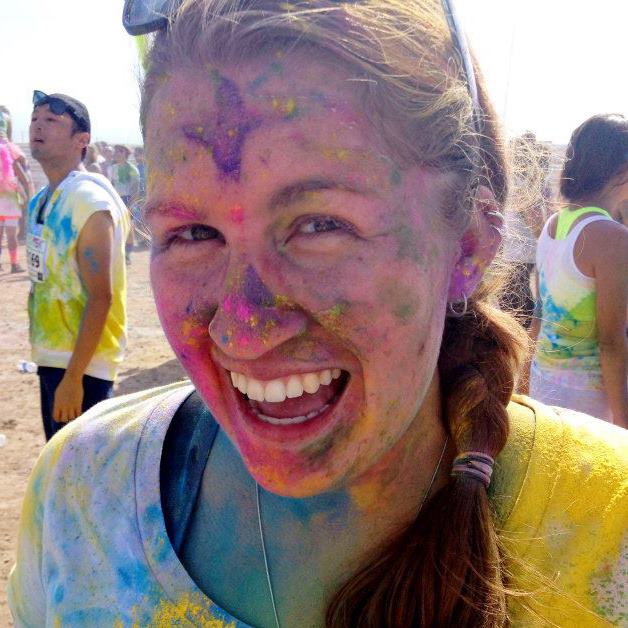
I never thought I’d be a creator.
I fell in love with God the first summer I worked at a Presbyterian camp in Northern Illinois. I felt the Spirit stirring in me as I hiked between activities with campers. There, in the woods, amidst the prairies, under the stars, I felt deeply connected to the people and the creation around me, and I felt how powerful life can be in our connections.
In those connections, I discovered my desire to create. In high school, I created mixed-media art pieces (primarily out of garbage) because I was interested in giving new life to discarded things. I spent hours toiling over license plates and empty bottles and wood scraps, thinking about what connections to make. And then, I went to college. I hung up my glue gun and put away my hammer. It wasn’t so much that I didn’t have time, but that I didn’t make space for that part of me in the middle of reading, writing, and negotiating new-adulthood. And, I thought I didn’t miss it.
Then seminary happened. It was the second week of my first year, and the worship team was looking for someone who could sew. I blindly volunteered. The act of connecting fabrics for the purpose of worship drew me back to the sense of connection I felt in the woods. I breathed over the sewing machine and prayed the beginning verses of Genesis. Creation!
Later in seminary, I discovered ecofeminism. At its heart, ecofeminism centers on two concepts. First, all of creation is connected. Second, patriarchy has created a system that devalues both women and earth. But because of our connections, what happens to a part of creation affects the rest of creation.[1] It’s not just women who are affected by the desecration of creation; patriarchy forgets that men suffer too when we devalue any part of creation. Ecofeminism points to our collective dependency, including but also beyond our biological connections. We are dependent upon all of creation for so many things—for food, energy, breath.[2] We’re connected to all of creation in our creativity.
___________________________________________
We are not just created, but creators, and our capacity for creativity stretches over the trenches that patriarchy has dug between us.
___________________________________________
One of the ways that I’ve begun to understand my creativity is through what theologian Phil Hefner calls “created co-creator.” He suggests that we think about the separateness and connectedness of humanity as making us created co-creators, and with this identity, humanity is called to recognize itself not just as made of the topsoil, but also as made in God’s image.[3] His concept of the created co-creator asks humanity to consider not just who we are but also how we relate to the rest of creation. What does our role in the world mean for the rest of the world? How are we to exist as both the created and the co-creator (an idea which holds both stories of creation in Genesis together in our identity)? Our created status means that we are made by God, and we are created out of the biological processes of nature.[4] Our co-creator status points out that we are specially created with the ability to have more responsibility in the world.
God is Creator and guide. I believe in God the creator who loves all things into existence. Out of chaos, God dreamed order. Out of darkness, God painted light. And then… came everything else.
To be co-creator refers to the human freedom to make decisions which change humans and the world around them.[5] Humans have the ability to create systems of society that separate and oppress, but humans also have the ability to create in a way that lives into our connectivity. Patriarchal modes of development have traditionally emphasized definitions of “development” and “productivity” that value profits and quantities.[6] Ecofeminists, on the other hand, define development and productivity in terms of life and sustenance. What if we saw our creativity as a sign of development? By valuing the profit that can be extracted from the earth (or from women), patriarchy has regulated both the earth and women to roles of passivity, as if objects intended to be acted upon and used. Ecofeminism, instead, picks up this idea of co-creator and asserts the radical and inviolable agency of all humanity, including women—an agency that replaces objectification of people and of the earth with mutual relationship.
C.S. Lewis describes the creation of his fictional world of Narnia in his book, The Magician’s Nephew. Lewis describes how the lion Aslan sings Narnia into existence.
The Lion was pacing to and fro about that empty land and singing his new song. It was softer and more lilting than the song by which he had called up the stars and the sun; a gentle rippling music. And as he walked and sang, the valley grew green with grass… the Lion opened his mouth, but no sound came from it; he was breathing out a long, warm breath; it seemed to sway all the beasts as the wind sways a line of trees. Far overheard from beyond the veil of blue sky which hid them the stars sang again; a pure difficult music… and the deepest wildest voice they had ever heard was saying: “Narnia, Narnia, Narnia, awake. Love. Think. Speak.”[7]
I never thought I’d be a creator, until I realized that my own Creator meant me to be one. I don’t know if I was sung into being like Lewis imagines or sculpted into humanity as Genesis reads. I do know that all of us—humanity and the rest of creation—are connected in our possibility. We are not just created, but creators, and our capacity for creativity stretches over the trenches that patriarchy has dug between us. All humanity—all creation—is connected by our common source in God, and through that connection we are being transformed into who God created us to be.
Read more articles like this one in the Nov 2012–Jan 2013 issue, “Hope for Eco-Activists: Discovering an Environmental Faith“
Notes
[1] Judith Plant, “Learning to Live with Differences: The Challenge of Ecofeminist Community,” in Ecofeminism: Women, Culture, Nature,ed. Karen J. Warren (Bloomington, IN: Indiana University Press, 1997), 127.
[2] Susan Griffin, “Split Culture,” in Healing the Wounds: The Promise of Ecofeminism, ed. Judith Plant (Philadelphia, PA: New Society Publishers, 1989), 11
[3] Anna Case-Winters, Reconstructing a Christian Theology of Nature: Down to Earth (Burlington: Ashgate, 2007), 114.
[4] Ibid., 118.
[5] Philip Hefner, The Human Factor: Evolution, Culture and Religion (Minneapolis, MN: Fortress Press, 1993), 38.
[6] Vandana Shiva, “Development, Ecology, and Women,” in Healing the Wounds: The Promise of Ecofeminism, ed. Judith Plant (Philadelphia, PA: New Society Publishers, 1989), 83.
[7] C.S. Lewis, “The Magician’s Nephew,” in The Chronicles of Narnia ( New York, NY: HarperCollins Publishers, 2002), 64,70.
Abby Mohaupt is the Pastoral Resident at First Presbyterian Church in Palo Alto, CA, where she joyfully serves the congregation through art making, preaching, and sharing meals. She holds a Masters of Divinity and a Masters of Theology from McCormick Theological Seminary and a Bachelor of Arts in Religion from Illinois Wesleyan University. When she’s not working, Abby enjoys running and finding redwood groves.


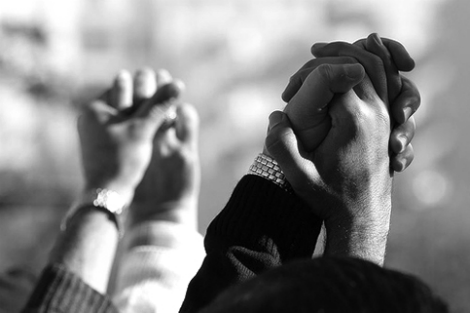

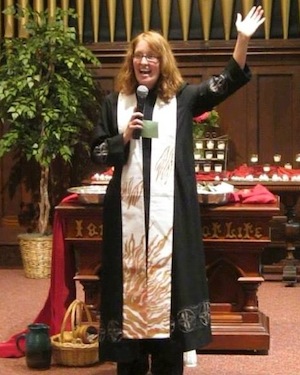
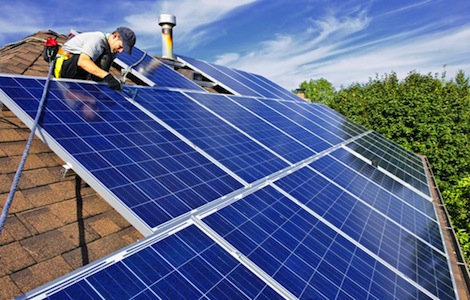
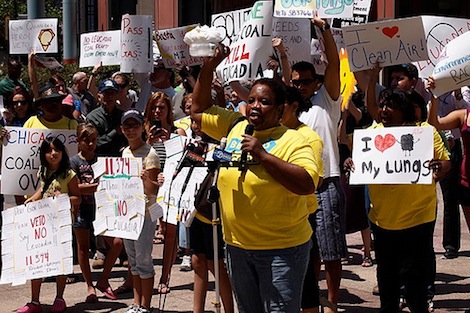
Unbound Social